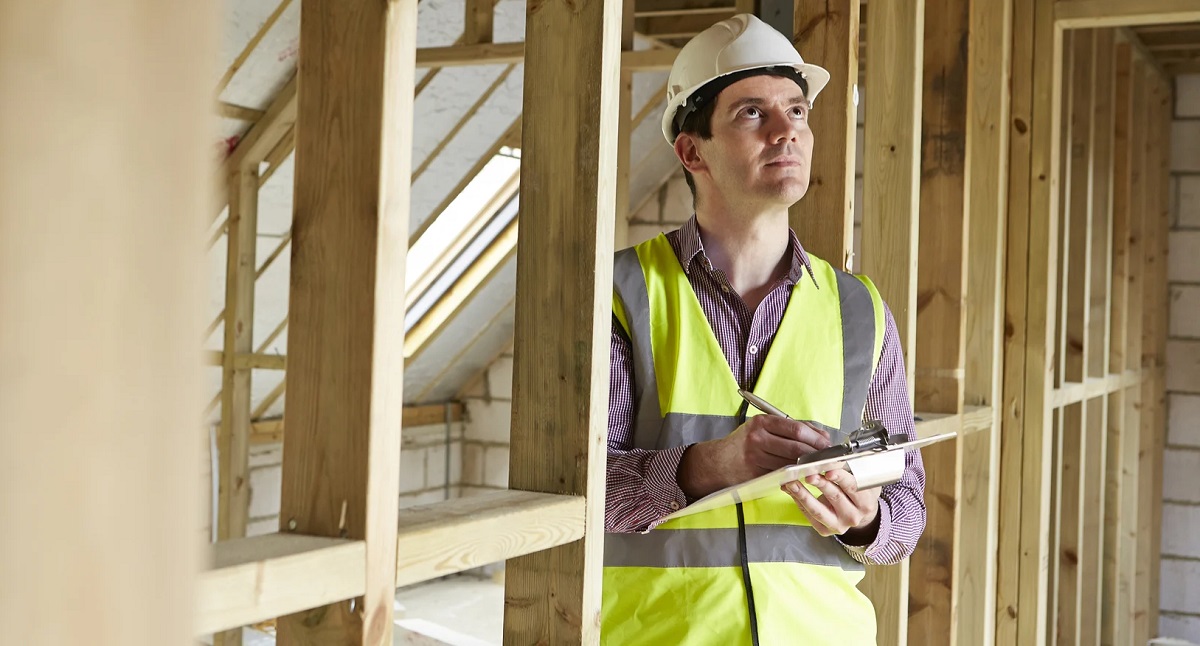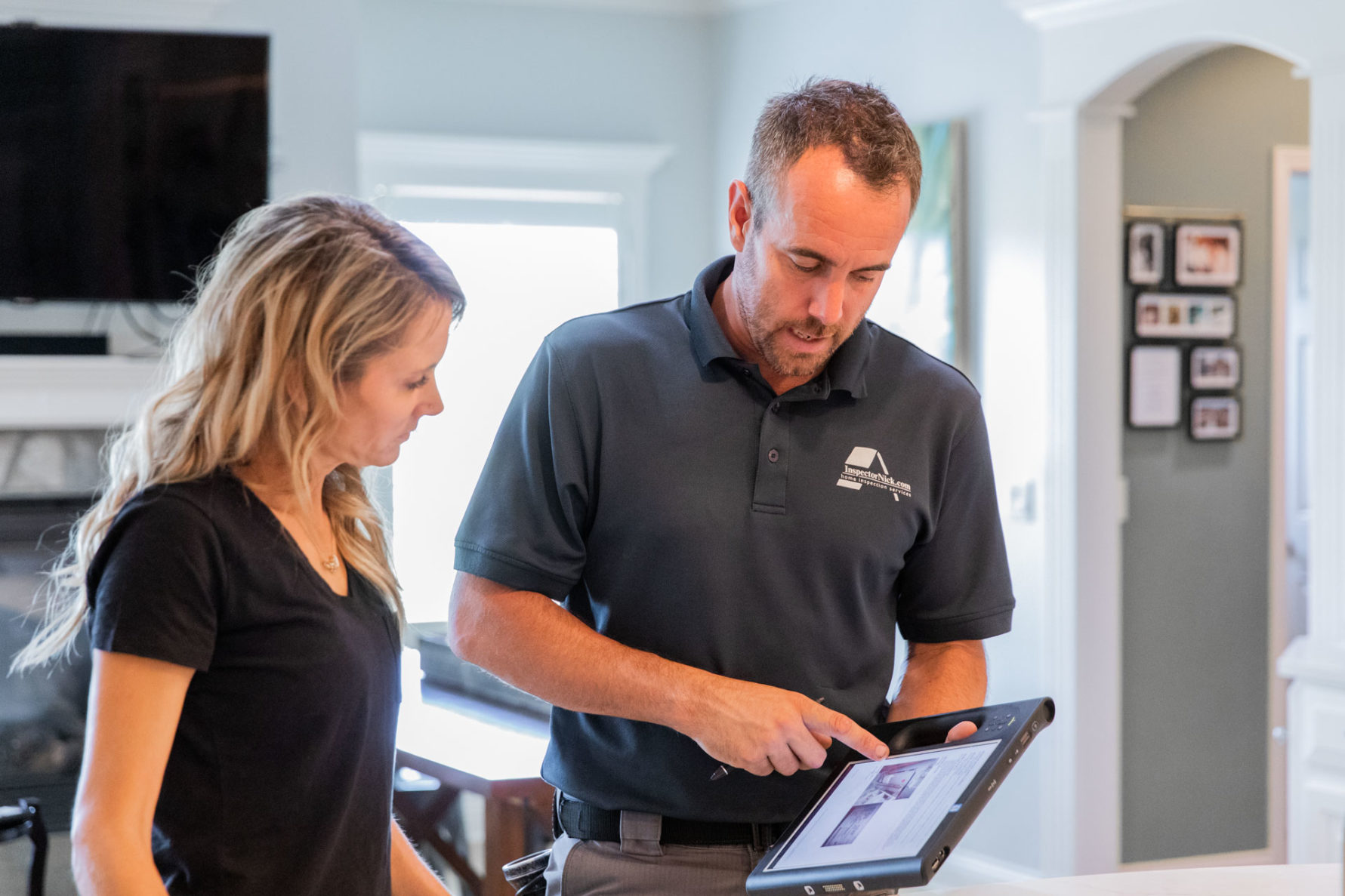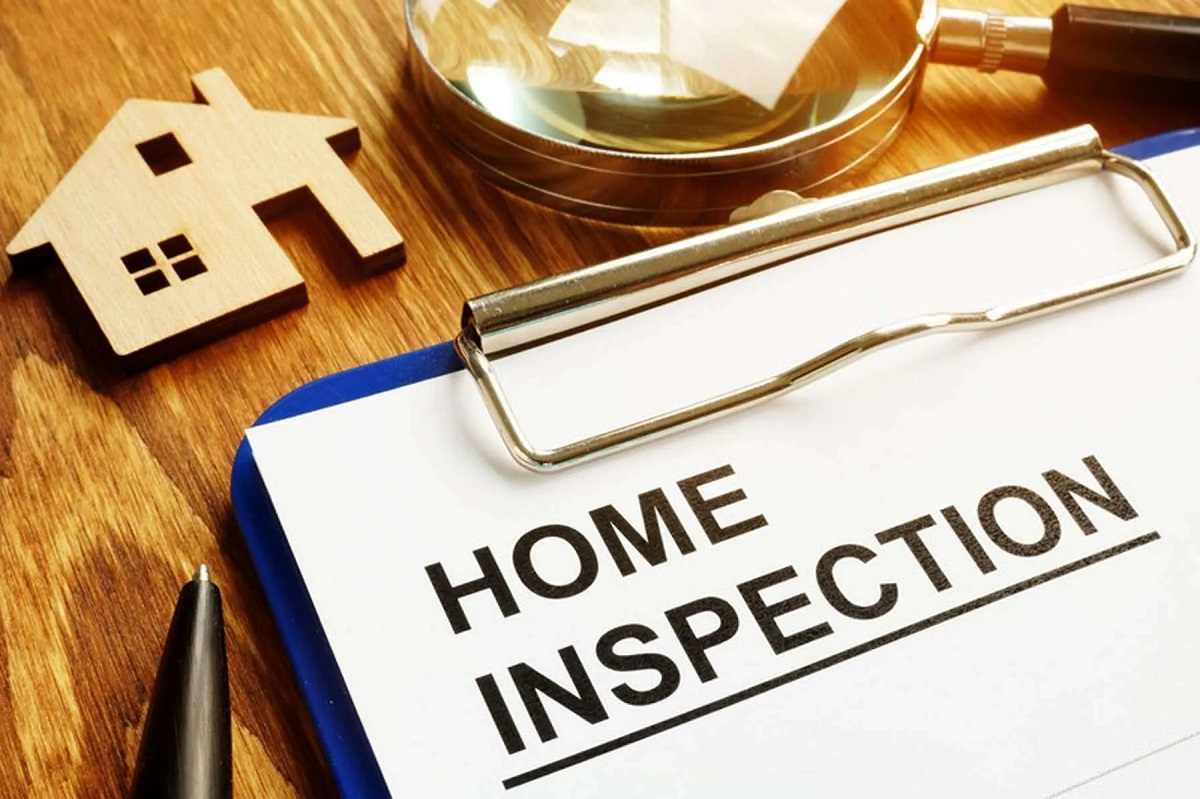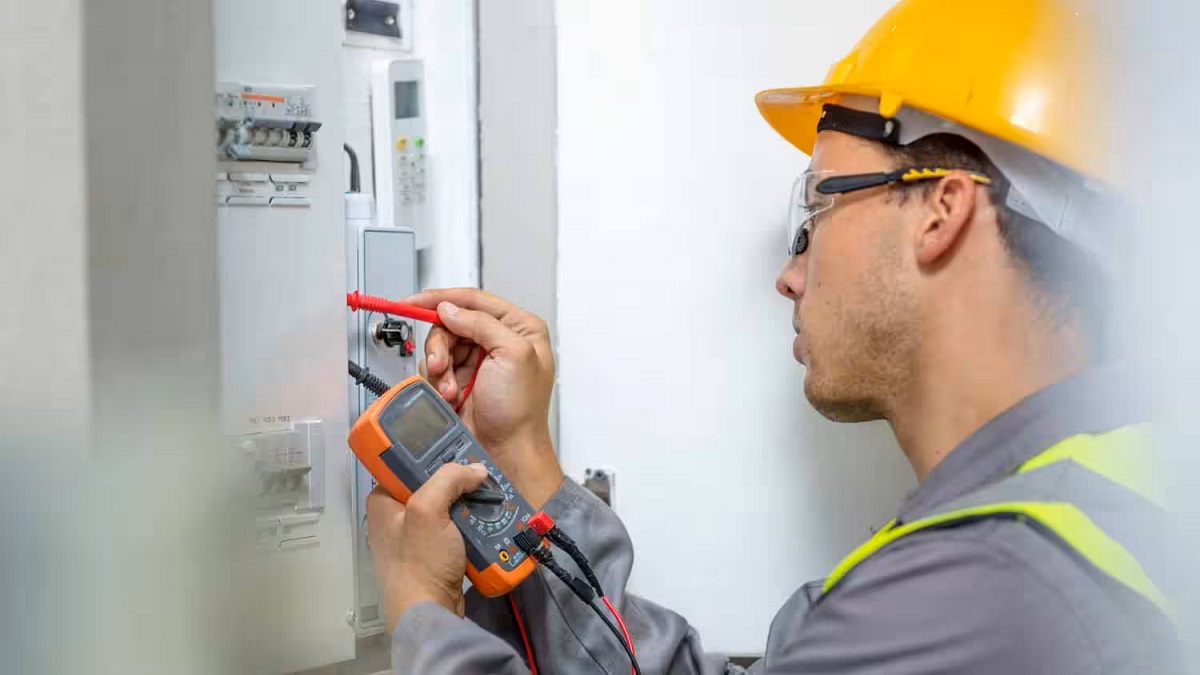Home>Home Maintenance>What Is A Pre-Inspection For A Buyer?


Home Maintenance
What Is A Pre-Inspection For A Buyer?
Modified: March 6, 2024
Discover the importance of a pre-inspection for home buyers. Learn how this crucial step in the home-buying process can save you from costly repairs and unexpected issues.
(Many of the links in this article redirect to a specific reviewed product. Your purchase of these products through affiliate links helps to generate commission for Storables.com, at no extra cost. Learn more)
Introduction
Welcome to the world of home buying! Purchasing a home is an exciting milestone in anyone’s life, but it can also be a complex and overwhelming process. One crucial step in this journey is the pre-inspection for buyers. If you are wondering what exactly a pre-inspection is and why it is important for you as a buyer, you have come to the right place.
A pre-inspection for buyers, also known as a home inspection, is an essential part of the home buying process. It involves hiring a professional inspector to thoroughly assess the condition of a home before finalizing the purchase. This inspection helps identify any potential issues or defects in the property that may affect its value or require repairs.
In this article, we will delve deeper into the definition of a pre-inspection, the reasons why it is crucial for buyers, the benefits it offers, and the process involved. We will also explore the potential issues that can be uncovered during a pre-inspection and discuss how to negotiate based on the findings. By the end of this article, you will have a comprehensive understanding of the pre-inspection process and its significance for buyers.
So, let’s jump right in and explore the world of pre-inspections for buyers!
Key Takeaways:
- A pre-inspection helps home buyers understand a property’s condition, plan for future expenses, and negotiate for repairs or a fair price, providing peace of mind and protecting their investment.
- The pre-inspection process involves selecting a qualified inspector, attending the inspection, reviewing the report, and negotiating based on findings to make informed decisions and protect buyer’s interests.
Read more: What Is A Buyer’s Inspection Advisory?
Definition of a Pre-Inspection for a Buyer
A pre-inspection for a buyer, also referred to as a home inspection, is a thorough examination of a property’s condition conducted by a professional home inspector. It is typically arranged by the prospective buyer to gain a comprehensive understanding of the property’s structural integrity, maintenance requirements, and potential issues before closing the purchase.
During a pre-inspection, the home inspector assesses various aspects of the property, including the foundation, roof, electrical systems, plumbing, HVAC (heating, ventilation, and air conditioning), insulation, and other structural components. Additionally, they may inspect appliances, interior features, and exteriors like decks, patios, and driveways. The goal is to identify any existing or potential problems that may affect the property’s value or require repairs.
The inspector conducts a visual examination of the property, looking for visible signs of wear and tear, damage, or issues. They may also use specialized tools such as a moisture meter, infrared camera, or gas detector to identify hidden problems that may not be immediately apparent.
It is important to note that a pre-inspection is not a pass or fail examination. Rather, it is an opportunity for the buyer to obtain a comprehensive evaluation of the property’s condition and make an informed decision about the purchase. Based on the inspector’s findings, the buyer can assess the potential costs of repairs or negotiate with the seller for necessary repairs or a reduction in the purchase price.
Now that we understand the definition of a pre-inspection for a buyer, let’s explore why it is so important in the home buying process.
Importance of a Pre-Inspection for Buyers
A pre-inspection holds immense importance for buyers in the home buying process. It offers several key benefits and safeguards their interests. Let’s explore why a pre-inspection is so crucial:
- Understanding the Property’s Condition: A pre-inspection provides buyers with a thorough assessment of the property’s condition. It helps identify existing issues, potential concerns, and areas that may require repairs or maintenance. This knowledge empowers buyers to make informed decisions and helps them evaluate whether the property aligns with their expectations and investment goals.
- Predicting Future Expenses: By having a pre-inspection, buyers can anticipate and plan for future expenses. The inspection report will highlight any major repairs that may be needed in the near future or components nearing the end of their lifespan. This information enables buyers to budget for repairs or negotiate with the seller to address these issues before closing the deal.
- Negotiating Power: A pre-inspection report can be a valuable tool during the negotiation process. If the inspection reveals significant issues or the need for repairs, buyers can request that the seller addresses these concerns or adjust the purchase price accordingly. This negotiation power helps buyers protect their investment and ensure they are getting a fair deal.
- Peace of Mind: Buying a home is a significant financial investment, and a pre-inspection provides buyers with peace of mind. It allows them to proceed with the transaction knowing the property has been thoroughly examined by a professional. By uncovering any hidden issues, buyers can rest assured that they are making an informed decision and are aware of the property’s condition.
- Insurance and Financing Purposes: Some insurance companies may require a home inspection before providing coverage. Lenders also often require a home inspection before approving a mortgage. By having a pre-inspection, buyers can meet these requirements and proceed with insurance and financing processes without any delays or complications.
Overall, a pre-inspection is a vital step in the home buying process, ensuring buyers have a clear understanding of the property’s condition and protecting their interests. It provides valuable insights, helps with negotiation, and offers peace of mind. Now that we understand the importance of a pre-inspection, let’s explore the benefits it offers to buyers.
Benefits of a Pre-Inspection for Buyers
A pre-inspection can provide numerous benefits for buyers in the home buying process. Let’s explore some of the key advantages:
- Identifying Potential Issues: One of the primary benefits of a pre-inspection is the ability to identify potential issues with the property. The home inspector’s expertise allows them to spot problems, both visible and hidden, that may not be apparent to the buyer. Whether it’s a faulty electrical system, a leaky roof, or structural damage, the pre-inspection helps uncover these issues early on.
- Budgeting for Repairs: Armed with the information from the pre-inspection report, buyers can accurately budget for any necessary repairs. This helps avoid unexpected financial burdens after the purchase is complete. By understanding the projected repair costs, buyers can factor them into their overall budget and make an informed decision about the affordability of the property.
- Protecting Investment: Investing in a home is a substantial financial commitment. A pre-inspection acts as a safeguard, protecting buyers from unexpected repair costs and future issues. If significant issues are identified during the inspection, buyers can negotiate with the seller to address them before finalizing the purchase. This ensures that buyers are investing in a property that is in good condition and minimizes the risk of costly repairs down the line.
- Potential Negotiation Power: A pre-inspection provides buyers with valuable negotiation power. If the inspection report reveals significant problems, buyers can use this information to negotiate a lower purchase price or request the seller to cover the repair costs. This can result in substantial savings and allow buyers to maximize their investment.
- Peace of Mind: Buying a home can be a stressful process, but a pre-inspection can provide buyers with peace of mind. By knowing the condition of the property, buyers can proceed with confidence, knowing they have made an informed decision. This peace of mind allows buyers to focus on other aspects of the home buying process, such as financing and moving plans.
Overall, a pre-inspection offers a range of benefits for buyers. It helps identify potential issues, allows for accurate budgeting, protects the investment, provides negotiation power, and offers peace of mind. By investing in a pre-inspection, buyers can make informed decisions and ensure a smooth and successful home buying experience.
A pre-inspection for a buyer is a thorough examination of a property before making an offer. It helps identify any potential issues and allows the buyer to make an informed decision.
Process of a Pre-Inspection for Buyers
The process of a pre-inspection for buyers involves several key steps to ensure a comprehensive assessment of the property’s condition. Let’s walk through the typical process:
- Selecting a Qualified Home Inspector: Start by researching and selecting a qualified and reputable home inspector. Look for professionals who are licensed, experienced, and knowledgeable in home inspections. Ask for recommendations from friends, family, or real estate agents who have had positive experiences with home inspectors in the past.
- Scheduling the Inspection: Once you have chosen a home inspector, coordinate with them to schedule the inspection. This should ideally be done before finalizing the purchase agreement to ensure there is sufficient time for the inspection and any further negotiations if needed.
- Attending the Inspection: It is highly recommended for buyers to attend the pre-inspection. This allows you to see firsthand the condition of the property and ask any questions directly to the inspector. It’s an opportunity to gain a deeper understanding of the inspection findings and any potential issues that may arise.
- Thorough Examination of the Property: During the inspection, the home inspector will conduct a comprehensive examination of the property. They will inspect all accessible areas, including the interior, exterior, roof, foundation, electrical systems, plumbing, HVAC, and more. The inspector will document their findings in a detailed report, including visuals and descriptions of any issues discovered.
- Reviewing the Pre-Inspection Report: Once the inspection is complete, the home inspector will provide you with a detailed pre-inspection report. Take the time to thoroughly review the report, paying close attention to any major defects, safety issues, or potential maintenance concerns highlighted by the inspector.
- Addressing Concerns and Negotiation: If the pre-inspection report reveals significant issues, it’s essential to address these concerns. Discuss the findings with your real estate agent to determine the best course of action. You may choose to negotiate with the seller to address the identified issues before closing or negotiate for a reduction in the purchase price to account for the repairs needed.
- Seeking Specialist Inspections (if required): In some cases, the home inspector may identify specific areas or components that require further evaluation by a specialist. This could include a foundation expert, HVAC technician, or electrician. If recommended, consider arranging for these additional inspections to gain a more comprehensive understanding of the property’s condition.
- Making an Informed Decision: Armed with the pre-inspection report and any additional specialist reports, you are now equipped to make an informed decision about proceeding with the purchase. Consider the overall condition of the property, the projected costs of any necessary repairs, and your budgetary constraints before moving forward.
Remember, the pre-inspection process is meant to provide you with a clear understanding of the property’s condition. It empowers you to make informed decisions and take necessary steps to protect your investment before completing the home purchase.
Potential Issues Uncovered in a Pre-Inspection
A pre-inspection is designed to identify any existing or potential issues with the property that may have an impact on its value or require repairs or maintenance. Here are some of the potential issues that can be uncovered during a pre-inspection:
- Structural Problems: The home inspector may discover issues with the property’s foundation, such as cracks or settling, which can affect the overall stability of the structure. Structural problems can be expensive to repair and may need immediate attention.
- Roofing Issues: A pre-inspection can reveal problems with the roof, such as leaks, damaged shingles, or improper installation. Roof repairs or replacements can be costly, so identifying these issues beforehand allows buyers to plan and budget accordingly.
- Electrical and Plumbing Concerns: The inspection can uncover faulty wiring, outdated electrical panels, plumbing leaks, or inadequate water pressure. These issues can impact safety, functionality, and water usage within the property and may require professional repairs or updates.
- Heating, Ventilation, and Air Conditioning (HVAC) Problems: The inspector may note problems with the HVAC system, such as malfunctioning furnaces, inefficient air conditioning units, or inadequate ventilation. Ensuring proper functionality and efficiency of the HVAC system is essential for comfort and energy efficiency.
- Mold or Pest Infestations: A pre-inspection can reveal the presence of mold, mildew, or pest infestations such as termites or rodents. These issues can pose health risks and may require immediate remediation or pest control measures.
- Insulation and Energy Efficiency: The inspector may assess the insulation levels and energy efficiency of the property. Inadequate insulation can result in higher energy costs. Identifying these issues allows buyers to plan for insulation upgrades or take energy-saving measures.
- Water Damage or Moisture Intrusion: The inspection can uncover signs of water damage or moisture intrusion, such as stains, peeling paint, or dampness. These issues can indicate leaks, plumbing problems, or poor drainage, which may lead to further damage if not addressed.
- Environmental Concerns: The inspector may identify environmental concerns, such as asbestos, lead-based paint, radon, or other hazardous materials. Buyers may need to address these issues for health and safety reasons or comply with local regulations.
These are just some of the potential issues that can be uncovered during a pre-inspection. It is important to review the inspector’s report thoroughly, discuss any concerns with your real estate agent, and potentially seek specialized professional advice to address these issues adequately.
Negotiating Based on Pre-Inspection Findings
One of the key advantages of a pre-inspection is that it provides buyers with crucial information that can be used for negotiation purposes. Here are some tips on how to negotiate based on the findings of a pre-inspection:
- Review the Pre-Inspection Report Thoroughly: Carefully review the pre-inspection report and make note of any significant issues or repairs needed. Pay attention to safety concerns, structural problems, and any expensive repairs that may be required. Understand the potential impact of these findings on the property’s value.
- Prioritize the Major Issues: Identify the major issues that could significantly affect the property’s value or require immediate attention. Focus on these key concerns during the negotiation process. Consider the estimated costs of repairs and seek quotes from contractors if necessary.
- Consult with Your Real Estate Agent: Discuss the inspection findings with your real estate agent, who can provide valuable guidance during the negotiation process. They have experience in dealing with similar situations and can advise you on the best approach to addressing the issues with the seller.
- Request Seller Repairs: If the pre-inspection uncovers significant problems, consider requesting the seller to address these issues before closing the deal. This could involve repairs, replacements, or seeking a professional opinion or estimate to determine the extent of the problem. Be specific in your requests and provide supporting documentation.
- Negotiate a Reduction in Purchase Price: Alternatively, you can negotiate with the seller for a reduction in the purchase price to account for the repairs needed. Obtain quotes from contractors to estimate the costs of the necessary repairs and use this information to support your negotiation. It is important to strike a balance between a fair discount and keeping the transaction viable for both parties.
- Consider a Home Warranty: If the inspection identifies several potential issues, it may be worthwhile to request the seller to provide a home warranty. This can help alleviate concerns about unexpected repair costs after the purchase. A home warranty can cover certain repairs or replacements for a specific period of time, offering peace of mind to the buyer.
- Be Open to Compromise: Negotiations are a two-way street, and it’s important to be open to compromise. The seller may be willing to address some issues but not others. Consider the overall value of the property, your budget, and the urgency of the repairs when determining your negotiation strategy. Flexibility can help reach a mutually beneficial agreement.
- Document Any Agreed Upon Changes: Once an agreement is reached, document any changes to the purchase agreement in writing. This will ensure that both parties are clear on the agreed-upon repairs, adjustments, or price reductions, and can help avoid any misunderstandings in the future.
Negotiating based on the findings of a pre-inspection requires careful consideration and effective communication with the seller. By understanding the inspection report, prioritizing major issues, and consulting with professionals, you can navigate the negotiation process with confidence and protect your interests as a buyer.
Conclusion
A pre-inspection for buyers, also known as a home inspection, is a crucial step in the home buying process. It provides buyers with a comprehensive assessment of the property’s condition, allowing them to make informed decisions and protect their investment.
Throughout this article, we have explored the definition of a pre-inspection, the importance it holds for buyers, the benefits it offers, the process involved, the potential issues that can be uncovered, and how to negotiate based on the findings.
By conducting a pre-inspection, buyers gain a clear understanding of the property’s condition, identify potential issues, and budget for necessary repairs. It also gives them negotiation power, allowing for adjustments to the purchase price or requesting repairs from the seller. Additionally, a pre-inspection provides buyers with peace of mind, knowing they have made an informed decision and have a comprehensive overview of the property.
When undertaking a pre-inspection, it is essential to select a qualified home inspector, attend the inspection if possible, review the inspection report thoroughly, and consult with your real estate agent. This collaborative effort helps you gather the necessary information and make informed choices.
Remember, a pre-inspection is not a guarantee of a perfect property, but it provides you with the knowledge you need to make an informed decision. It’s an investment in your future home and can help uncover potential issues that may impact your enjoyment of the property and its long-term value.
In conclusion, a pre-inspection for buyers is an essential part of the home buying process. It provides buyers with insights into a property’s condition, protects their interests, and ensures a smoother and more informed transaction. By prioritizing a pre-inspection, buyers can feel confident in their decision-making and move forward with their home purchase with clarity and peace of mind.
Frequently Asked Questions about What Is A Pre-Inspection For A Buyer?
Was this page helpful?
At Storables.com, we guarantee accurate and reliable information. Our content, validated by Expert Board Contributors, is crafted following stringent Editorial Policies. We're committed to providing you with well-researched, expert-backed insights for all your informational needs.















0 thoughts on “What Is A Pre-Inspection For A Buyer?”